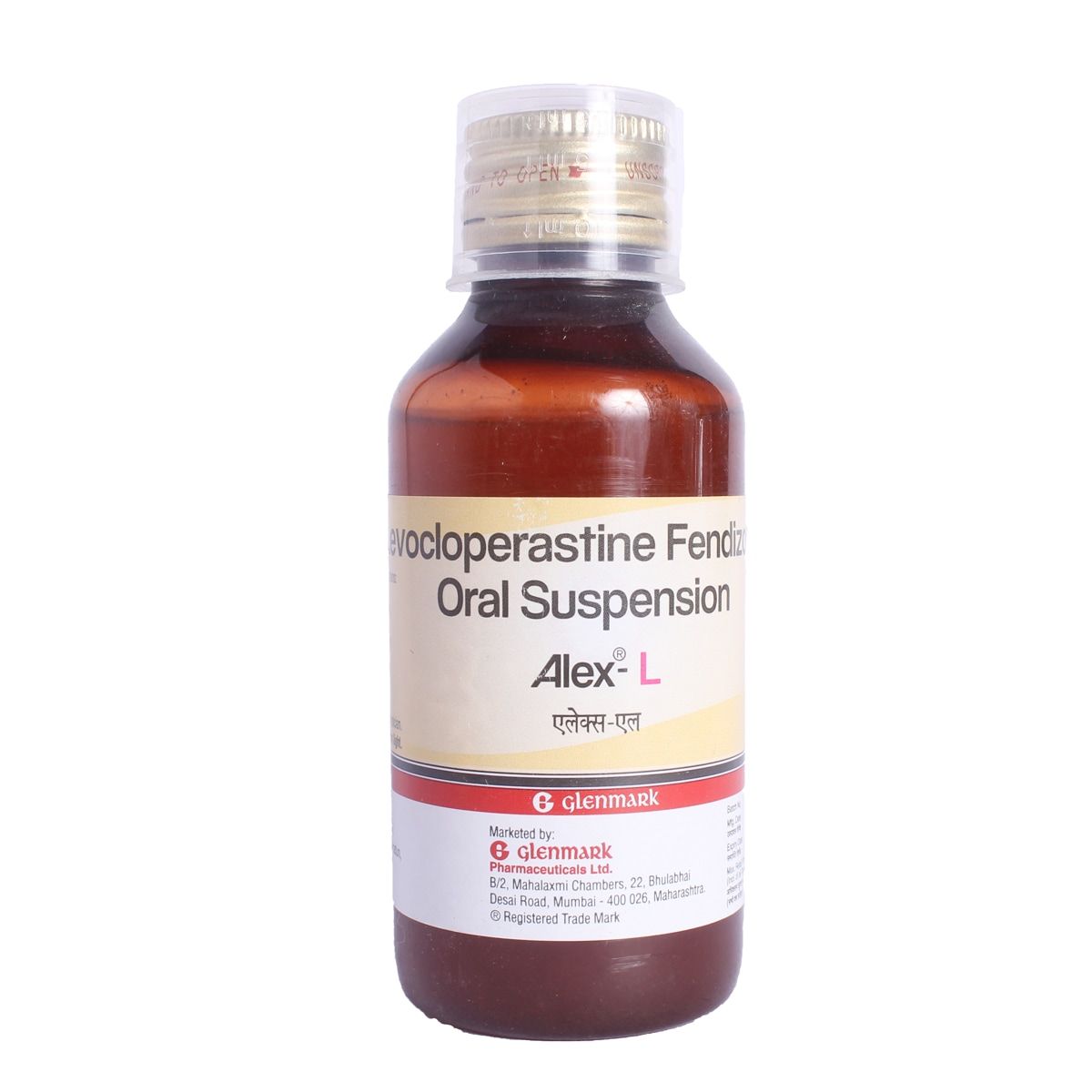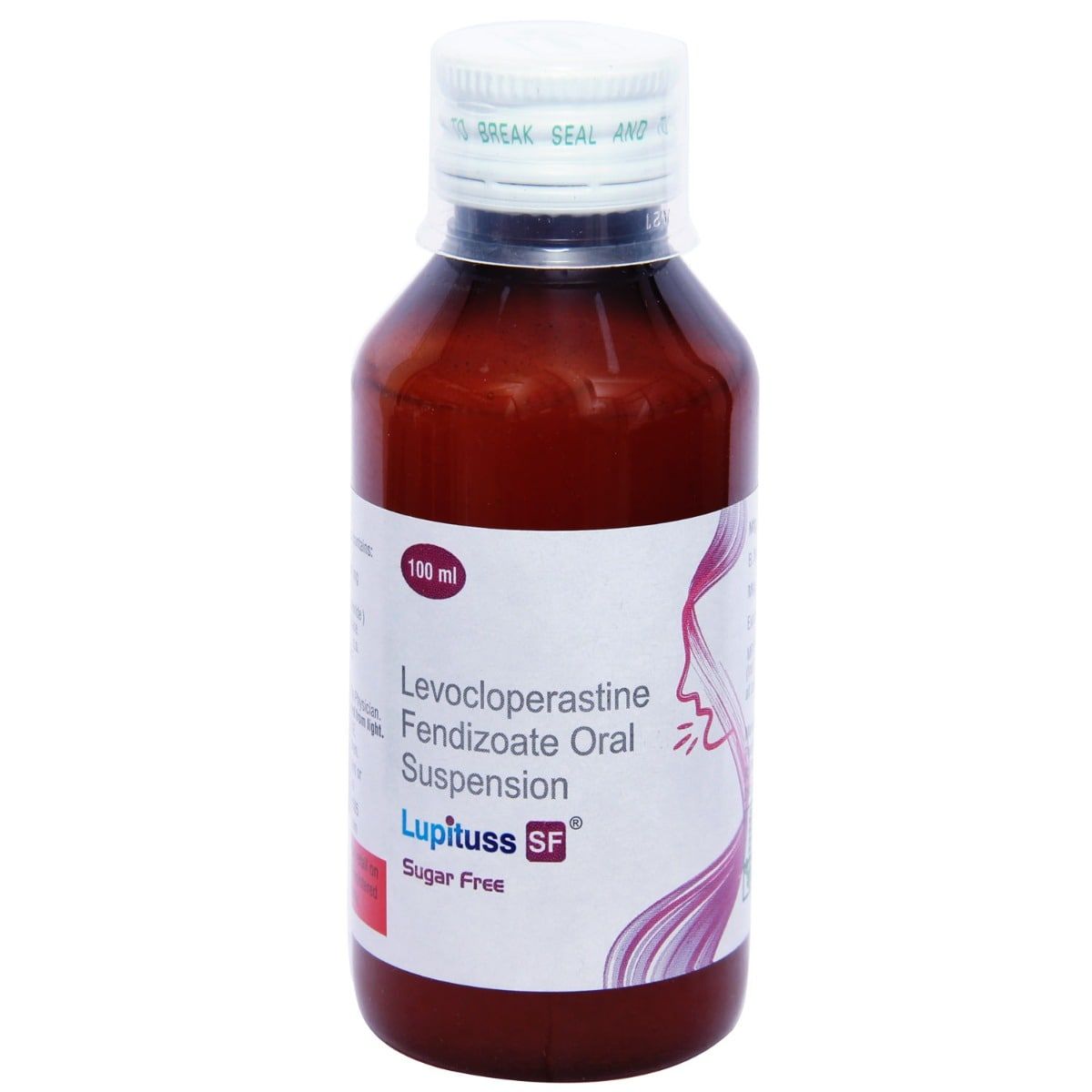Levocloperastine
About Levocloperastine
Levocloperastine contains an anti-tussive (cough suppressant) medication primarily used to treat dry cough. Cough is a reflex action that helps to clear any foreign irritant or mucus in the throat. Mostly cough lasts for a short time (two to three weeks), so it is acute. But sometimes, if it is persistent for more than eight weeks, it can lead to chronic cough. Dry cough refers to a cough where there is no mucus or secretion along with cough.
Levocloperastine contains Levocloperastine, which is a cough suppressant. It works by blocking the cough receptor present in the brain, which is known to cause cough. Levocloperastine is generally prescribed for short-term treatment of dry cough. It does not treat chronic cough or cough caused due to smoking, emphysema and asthma.
Take Levocloperastine as prescribed by the doctor. The most common side effects of Levocloperastine are nausea, drowsiness, dizziness, dryness in the mouth, fainting, fatigue, and headache. Most of these side effects of Levocloperastine do not require medical attention and gradually resolve over time. However, if the side effects persist or worsen, please consult your doctor.
Do not take Levocloperastine if you are allergic to any of its components. Increase the intake of fluids so that the mucus present loosens and the throat is remains lubricated. If you are pregnant or breastfeeding, please inform your doctor before starting Levocloperastine. Also, mention all the medicines you take to your doctor before starting Levocloperastine. If your condition does not improve or your cough comes back or occurs with fever, or rash, please visit the doctor immediately as this could be serious.
Uses of Levocloperastine
Medicinal Benefits
Levocloperastine is an antitussive, non-opioid that significantly helps to reduce the severity and frequency of cough. It is primarily used to treat dry cough. Levocloperastine contains levocloperastine, which is a cough suppressant. It works by blocking the cough receptor present in the brain, which is known to cause cough. Levocloperastine is generally prescribed for short-term treatment of dry cough. It does not treat chronic cough or cough caused due to smoking, emphysema and asthma.
Directions for Use
Storage
Side Effects of Levocloperastine
- Dryness in mouth
- Numbness
- Dizziness
- Headache
- Palpitations
- Faintness
- Loss appetite
- Sleepiness
- Fatigue
- Rash
Drug Warnings
Do not take Levocloperastine if you are allergic to Levocloperastine or levocloperastine. Increase the intake of fluids so that the mucus present loosens and the throat is remains lubricated. If you are pregnant or breastfeeding, please inform your doctor before starting Levocloperastine. Also, mention all the OTC medicines you are talking to your doctor before taking Levocloperastine. Do not smoke as it might worsen your symptoms, so avoid tobacco intake. Before taking Levocloperastine, inform your doctor if you have a history of hypertension, heart disease, seizures, diabetes, hyperthyroidism.
Drug Interactions
Drug-Drug Interactions: Levocloperastine may interact with medicines to treat depression, and CNS stimulants.
Drug-Food Interactions: Avoid alcohol intake with Levocloperastine as it may cause increased drowsiness, and dizziness.
Drug-Disease Interactions: If you have hypertension, heart disease, seizures, diabetes, or hyperthyroidism, inform your doctor before taking Levocloperastine.
Drug-Drug Interactions Checker List:
Safety Advice

Alcohol
unsafeAvoid consumption of alcohol with Levocloperastine as it may increase drowsiness or dizziness. Please consult a doctor before consuming alcohol with Levocloperastine.

Pregnancy
cautionLevocloperastine is a category C pregnancy drug. Its safety in pregnancy is unknown, so it should be taken only if prescribed by a doctor.

Breast Feeding
cautionIts safety in breastfeeding women is unknown, so it should be taken only if prescribed by a doctor.

Driving
unsafeLevocloperastine may cause drowsiness or dizziness in some people. Therefore, drive only if you are alert after taking Levocloperastine.

Liver
safe if prescribedNo interaction was found when Levocloperastine is taken in a liver problem. Consult your doctor for further advice.

Kidney
safe if prescribedNo interaction was found when Levocloperastine is taken in a kidney problem. Consult your doctor for further advice.

Children
cautionLevocloperastine is not recommended for children below the age of two.
Habit Forming
Diet & Lifestyle Advise
Wash your hands with soap and water regularly to prevent the spread of germs.
Eat plenty of foods rich in good bacteria like yoghurt to improve overall health.
Drink plenty of fluids to avoid dehydration.
Gargle with salt water for relief from sore throat.
Do not smoke as it might worsen your symptoms, so avoid tobacco intake.
Avoid alcohol consumption with Levocloperastine as it may cause tiredness, drowsiness or lack of concentration.
Special Advise
Do not smoke as it might worsen your symptoms, so avoid tobacco intake.
Avoid alcohol consumption with Levocloperastine as it may cause tiredness, drowsiness or lack of concentration.
Patients Concern
Disease/Condition Glossary
Cough: It is a reflex action that clears any foreign irritant or mucus in the throat. Mostly cough lasts for a short time (two to three weeks), so it is acute. But sometimes, if it is persistent for more than eight weeks, it can lead to chronic cough. If the cough is accompanied by blood or barking cough, this could be serious and require medical attention. The most common causes of cough are cold/flu, asthma, emphysema, and COPD (chronic obstructive pulmonary disease).
FAQs
Levocloperastine is used to treat dry cough.
Levocloperastine works by blocking the cough receptor present in the brain, which is known to cause cough.
Yes, Levocloperastine may cause drowsiness or dizziness, so operating any machinery or driving a car, doing an activity that requires concentration and alertness should be avoided.
Levocloperastine is not a steroid, antihistamine, opiate, NSAID or narcotic, it is a decongestant, but it can have addictive effects if taken in more than the recommended dose. It does not contain codeine or alcohol. It is not a controlled substance.
No, never take more than the prescribed dose of Levocloperastine. It may lead to symptoms like nausea, vomiting, drowsiness, dizziness, unsteadiness, changes in vision, difficulty in breathing, fast heartbeat, hallucination, seizures and coma.
Levocloperastine may cause dry mouth as a temporary side effect in some people. It is not necessary for everyone taking Levocloperastine to experience this side effect. However, to avoid such side effects, drink plenty of water, regularly rinse your mouth, practice good oral hygiene and suck on sugarless candy. However, if the condition persists or worsens, please consult a doctor.






